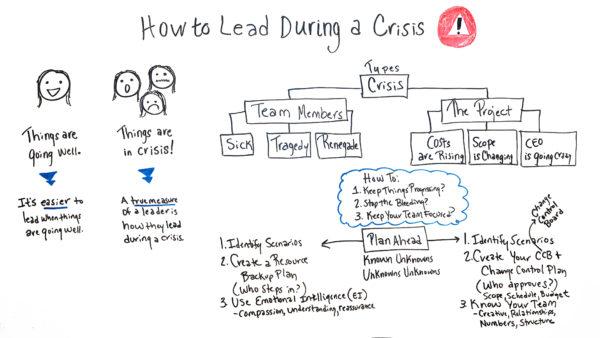Table of Contents
- Understanding Your Emotional Response to Crisis Situations
- Techniques for Maintaining Mental Clarity Under Pressure
- Practical Strategies for Effective Decision Making During Emergencies
- Building Resilience Through Mindfulness and Stress Reduction Practices
- Final Thoughts
Understanding Your Emotional Response to Crisis Situations
When faced with unexpected challenges, it’s natural for the mind and body to react immediately. These reactions, ranging from heightened anxiety to a sudden surge of adrenaline, serve a purpose-they prepare you to respond to the danger at hand. However, understanding these emotional cues can empower you to regain control rather than be overwhelmed by them. Recognizing that feelings of panic or confusion are instinctive responses allows you to step back and assess the situation with greater clarity.
Emotional awareness in crisis moments is key to making sound decisions. You can practice this by:
- Identifying your initial feelings without judgment-acknowledge fear, frustration, or helplessness.
- Using deep breathing techniques to calm your nervous system.
- Reminding yourself of past experiences where you successfully managed stress.
Techniques for Maintaining Mental Clarity Under Pressure
When faced with intense pressure, grounding yourself in the present moment can make all the difference. Start by taking slow, deliberate breaths to activate your parasympathetic nervous system, calming your body and sharpening your mind. Incorporate micro-pauses between tasks to reset your focus and prevent cognitive overload. Techniques such as visualization of success or mentally rehearsing your next steps can build confidence and sustain clarity. Remember, maintaining mental clarity is not about eliminating stress but managing your response to it efficiently.
Effective strategies to stay sharp include:
- Prioritizing tasks by urgency and impact to avoid feeling overwhelmed
- Using mindfulness exercises to center attention and enhance decision-making
- Limiting distractions by controlling your environment and digital notifications
- Practicing grounded reflection, such as jotting down key thoughts or action points
- Engaging in short physical movement breaks to boost circulation and mental alertness
Practical Strategies for Effective Decision Making During Emergencies
When faced with high-pressure situations, the ability to make swift, informed decisions can dramatically alter outcomes. Start by prioritizing tasks according to their impact and urgency. Break down complex problems into smaller, manageable parts, and assess available resources before acting. Maintaining a clear mental map of the situation helps avoid paralysis by analysis. Remember to lean on established protocols or contingency plans-these frameworks were designed precisely to streamline decision-making when time is scarce.
Equally important is fostering open communication within your team or support network. Encourage sharing of critical information and diverse perspectives to enrich your understanding of the crisis at hand. Utilize simple decision-making tools like checklists or flowcharts to minimize cognitive load. Practice mindfulness techniques, such as controlled breathing or brief pauses, to reduce emotional stress and sharpen focus. Integrating these strategies enables leaders to respond decisively and adaptively, even amidst uncertainty.
- Prioritize and simplify: Focus on what matters most.
- Adhere to established protocols: Avoid reinventing the wheel under pressure.
- Communicate clearly: Encourage information flow within your team.
- Use decision aids: Checklists and flowcharts minimize errors.
- Practice mindfulness: Control stress to maintain clarity.
Building Resilience Through Mindfulness and Stress Reduction Practices
In the midst of chaos, developing a robust inner calm is not just beneficial-it’s essential. Mindfulness offers a powerful gateway to this tranquility by encouraging a deliberate focus on the present moment. This practice helps you recognize stress triggers without becoming overwhelmed, allowing you to respond with clarity rather than react impulsively. Incorporating even brief moments of mindful breathing or body scans throughout your day can dramatically build your mental stamina, enabling you to stay centered when tensions rise.
Integrating stress reduction techniques into your routine creates a resilience toolkit that can be called upon during turbulent times. Consider adopting daily habits such as:
- Controlled breathing exercises to lower heart rate and soothe the nervous system
- Progressive muscle relaxation to release physical tension accumulated from stress
- Journaling emotions to externalize and process challenging thoughts
- Gentle movement practices like yoga or stretching to maintain balance between body and mind
By consciously integrating these methods, you not only buffer the impact of immediate stressors but also cultivate a mindset resilient enough to navigate future crises with poise and confidence.
Final Thoughts
In the face of any crisis, maintaining calm and clarity is not just a luxury-it’s a necessity. By practicing the proven tips we’ve discussed, you can better manage stress, think more clearly, and make sound decisions when it matters most. Remember, staying composed is a skill that takes time and intentional effort to develop, but with consistent practice, it becomes a powerful tool in your personal and professional life. Keep these strategies close, and you’ll be better prepared to navigate whatever challenges come your way with confidence and resilience.Check Our Other Blogs
- StunGun – Your Trusted Source for Stun Guns, Laws, and Self-Defense Tips
- PepperSprayLaws – Your Trusted Resource for Pepper Spray Information
- StunGunLaws – Your Trusted Guide to Stun Gun Legality and Safety



